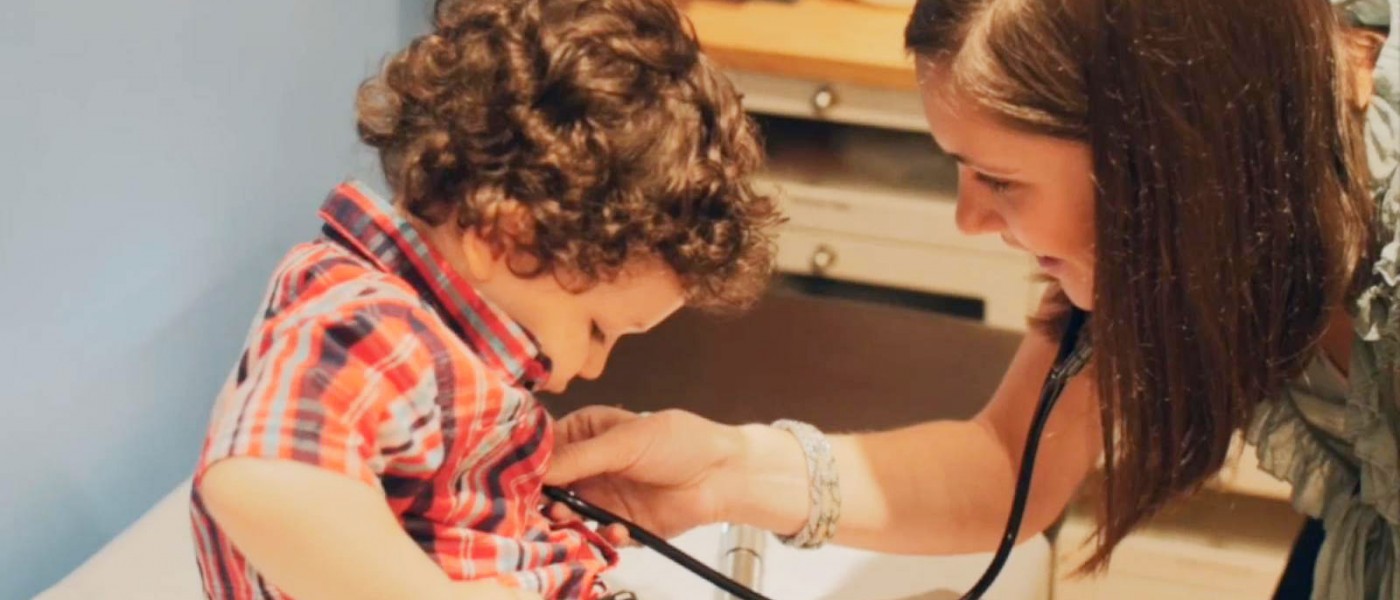Catching Early Signs of Speech Delay
Parenting is no easy feat, many times with our ever busy lives, the convenience of websites like WebMD seem to be the go-to diagnostic center, rather than the traditional “trip to the doctor’s office.” Deciphering whether or not your child has a speech or language challenge may not always be straightforward. I took the opportunity to sit down at Heights Pediatrics with Dr. Katerina Silverblatt, to address some of the most vital questions parents may ask themselves when it comes to discovering early signs of speech delay.
What age do parents bring their children to you with speech or language concerns?
 Children generally develop speech around one year of age. It is usually on the first year visit that we start discussing speech. Children do have some speech development before then, but it is typically limited to communication development. For example, babbling, cooing, and jargoning are ways for children to express themselves before true language develops. Most speech concerns come between the ages of 18-24 months, when parents compare their own child’s speech to the vocabulary of children of a similar age. Some speech concerns arrive later in childhood, likely those related to pronunciation, articulation and reading.
Children generally develop speech around one year of age. It is usually on the first year visit that we start discussing speech. Children do have some speech development before then, but it is typically limited to communication development. For example, babbling, cooing, and jargoning are ways for children to express themselves before true language develops. Most speech concerns come between the ages of 18-24 months, when parents compare their own child’s speech to the vocabulary of children of a similar age. Some speech concerns arrive later in childhood, likely those related to pronunciation, articulation and reading.
How often do you notice “red flags” in speech & language before a parent does?
It is a joint effort between both physician and parent when identifying any red flags that may be present. Normally, parents will come in for an appointment with some initial, general concerns without knowing exactly what the precise issue is. All parents are different, some may spot red flags before others, but overall parents usually bring concerns to the physician first. It is up to the physician to carefully observe the patient and decide a correct course of action. It may take several visits for us to convince some patients to receive speech therapy.
How important is intervening early with communication challenges?
Intervening early is very important. Early intervention has changed the developmental structure of our children. In addition, many children who are treated earlier will develop normal language. It is common for children with speech issues to have behavioral issues as well. This pattern is the result of frustration children experience if they are not understood. Some children who have speech delays can be delayed in other areas and should be evaluated for any underlying disorder. It is important that as physicians, we provide the families with strategies on how to deal with these issues thoroughly and act on early signs of speech delay.
It’s always good practice to work with your children at home to practice their speech and language development. Speech Buddies recommends these books and games for at-home practice.
How should parents go about choosing a Speech Language Pathologist?
It is important that you choose a therapist who is highly knowledgeable in their field and work well with your child’s specific needs. Asking about what insurance is accepted and if not, what other options are available to you and your child. Moreover, a therapist who is both accessible and flexible to ensure the needs of the patient is being met in a timely fashion. The earlier a patient is able to get an appointment the closer they are to getting the help they need.



